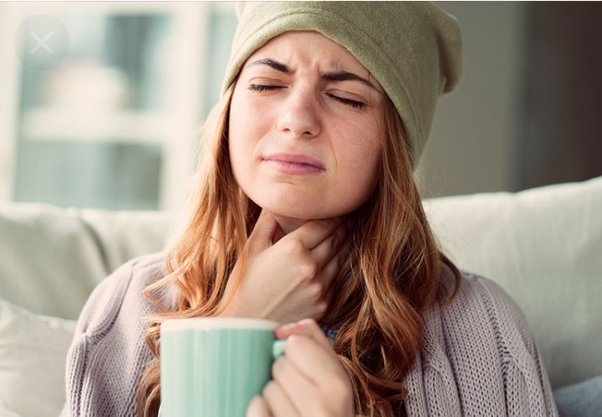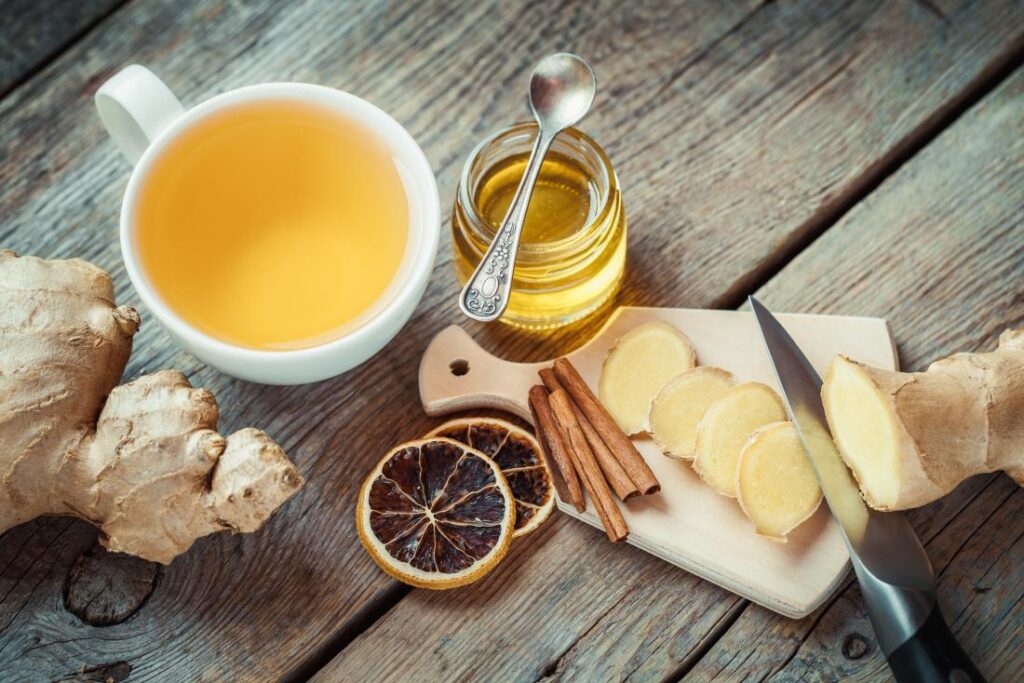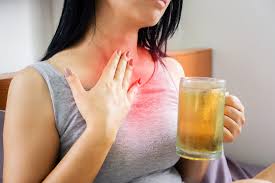The Impact Of Alcohol On The Throat
Alcohol has a variety of effects on the throat that can have both short-term and long-term effects. Drinking alcohol can short-term irritate and inflame the mucosal lining of the throat, which frequently results in a feeling of dryness, scratchiness, or minor discomfort. This is because alcohol dehydrates the throat and throws off the delicate balance of its natural defenses, which include ciliary function and mucus production. Chronic alcohol consumption can eventually result in more severe diseases.
Extended discomfort and inflammation can raise the chance of developing throat conditions such as chronic laryngitis, laryngopharyngeal reflux, and, in extreme situations, precancerous lesions or throat cancer. The immune system’s weakened state brought on by alcohol consumption may also increase the risk of throat infections.
Furthermore, alcohol can aggravate pre-existing throat disorders such as gastroesophageal reflux disease (GERD) by causing the lower esophageal sphincter to relax, which increases acid reflux and irritates the throat even more. The significance of moderate alcohol use and the necessity for a greater understanding of its possible impacts on throat health are highlighted by this intricate interplay of effects.
Understanding the 6 Major Causes of sore throats
Dehydration
Inflammation
Alcohol use also irritates every part of the body, including the throat. The result might be an itchy, dry throat.
Elevated acidity in the stomach
Additionally, alcohol can raise stomach acid, which can cause symptoms similar to heartburn, such as a sore throat.
Alcohol sensitivity
Acute alcohol sensitivity is another condition that affects certain people and is characterized by unpleasant side effects from alcohol use, such skin flushing and nasal congestion. A painful throat may result from sinus congestion brought on by acute alcohol sensitivity.
Reduced immunity
Additionally, drinking too much alcohol can impair immunity, leaving the throat more vulnerable to infections like the flu or colds, which can cause a sore throat.
7 Best Remedies on How to cure sore throat after drinking alcohol?
1. Stay hydrated
Alcohol dehydrates people, therefore you may counteract this impact by drinking lots of water or other fluids.
Moreover, drinking might lead to electrolyte abnormalities—dependable Source due to increased urine. Taking in meals and beverages high in sodium, potassium, and other necessary minerals may also aid in restoring these electrolytes.
The greatest supply of electrolytes is nutrient-dense, whole foods like broccoli, avocados, and dark leafy greens; but, if eating solids is difficult due to a hangover, you can also try ingesting a low-sugar sports drink, electrolyte tablets, or soup broth.
2. Rest
Resting well allows the tissues in your throat and voice box to repair. You could have slept for fewer hours than normal if you had been up late the night before, and this sleep deprivation could have affected your weariness.
Even if you managed to obtain a whole night’s rest, studies (Trusted Source) have shown that binge drinking lowers the quality of your subsequent sleep.
3. Saltwater rinse
Gargling with salt water is a common way to relieve sore throats.
Mix 1/4 and 1/2 teaspoon of salt with 8 ounces of warm water to produce a saltwater rinse.
After drinking the water, gargle it for around 30 seconds in the back of your throat. As necessary, repeat.
4. Steam shower
Remaining moisture from humid air will ease your throat’s discomfort and inflammation. Another option is to run hot water in a washbasin, cover your head with a towel, and inhale the warm air.
5. Throat lozenges
Saliva production may be stimulated by sucking on lozenges, sweets, or cough drops, which can aid in moisturizing your throat.
Additionally, hexylresorcinol Trusted Source, a chemical shown to relieve sore throats, is included in many over-the-counter lozenges.
6. Warm drinks with honey
Many people find that drinking warm tea relieves their sore throat. Numerous tea varieties, including ginger tea and green teaTrusted Source, also contain anti-inflammatory qualities that may help reduce inflammation.
If you wish to consume green tea, you might want to select a non-caffeinated kind because caffeine might have dehydrating effects.
Honey has been used as a natural cure for coughs and sore throats for many years. Although most of the data is anecdotal, a 2013 study discovered it decreased post-tonsillectomy Trusted Source throat soreness.
7. Nonsteroidal anti-inflammatory medicines (NSAIDs)
NSAIDs that you may buy over-the-counter, including ibuprofen or naproxen sodium, can help lessen throat swelling and irritation. NSAIDs may also assist in the relief of alcohol-related headaches.
7 Preventative Measures for sore throats from alcohol
Drink Cautiously
One of the most important prophylactic measures against alcohol-induced sore throats is to use caution when drinking. This calls for being aware of the kind and amount of alcohol ingested, as various alcoholic beverages might affect the throat in different ways. For example, higher alcohol content spirits are more likely to irritate than lower alcohol choices such as wine or beer. Drinking responsibly also means being aware of your own particular tolerance limits and not overindulging, which can worsen your throat discomfort. You may drastically lower your chance of getting a sore throat by consuming alcohol in moderation and by selecting less irritating varieties.
Keep Hydrated
One of the most critical tactics for avoiding alcohol-related sore throats is to maintain adequate hydration. Due to its diuretic properties, alcohol can cause dehydration by increasing the production of urine and causing fluid loss. The throat’s mucous membranes may become parched as a result of the dehydration, leaving them more prone to irritation. It is recommended to drink lots of water before, during, and after taking alcohol to mitigate this impact. The natural lubrication of the throat can be preserved by drinking water between alcoholic beverages to keep the throat moist and less likely to become inflamed or irritated.
Pace Yourself
One good strategy to avoid sore throats from alcohol consumption is to pace yourself. This entails drinking alcohol moderately and giving yourself plenty of time in between drinks. You may help your body, especially your throat, gradually become used to the effects of alcohol by timing your consumption. Because the throat isn’t overloaded with alcohol at once, this can lessen the chance of discomfort and inflammation. Drinking alcohol infrequently over a more extended period also helps the body metabolize it more efficiently, which reduces the alcohol’s overall negative effects on the throat and other organs.
Take Breaks Between Drinks
Including intervals between alcoholic beverages is a preventative measure for maintaining the health of your throat. These pauses might offer the body—especially the throat—a much-needed reprieve from the constant alcohol exposure. The mucous membranes of the throat can heal and rehydrate during these periods, which lowers the likelihood of discomfort and pain. Other activities or just relaxing are also beneficial during this time. In addition to reducing total alcohol intake, breaks can also stop the harmful consequences of consuming too much alcohol too rapidly.
Dietary Considerations
Dietary practices have a significant impact on preventing alcohol-related sore throats. Foods that promote healthy throats and lessen inflammation may be especially advantageous. For example, eating foods high in antioxidants, such as vitamins C and E, helps support the immune system and lower inflammation. It’s also a good idea to avoid spicy or acidic foods, as they might aggravate the throat even more, particularly after drinking. Including hydrating and calming meals, such as herbal teas or broths, can also support the health of your throat. One helpful strategy to reduce your chance of alcohol-related sore throat is to pay attention to your entire diet and select items that promote healthy throat function.
Avoiding Acidic and Spicy Foods
Avoiding acidic and spicy meals is vital when attempting to avoid or treat sore throats, especially those caused by alcohol intake. Foods high in acidity, such as tomatoes, citrus fruits, and items made with vinegar, might irritate the mucosal lining of the throat. Alcohol use may exacerbate this inflammation and cause more discomfort. However, the molecule that gives chili peppers their heat, capsaicin, is commonly found in spicy meals and can cause a burning feeling in the throat. In addition to being uncomfortable, this feeling may worsen already-existing alcohol-related inflammation.
Eating Nourishing and Soothing Foods
It might be quite helpful to include items that are calming and nutritious in your diet to combat the probable irritation of your throat caused by alcohol. Foods that are tender, mild, and simple to swallow help soothe sore throats. Warm soups and broths, especially those made with vitamin- and mineral-rich vegetables, may be nourishing and replenishing.
Furthermore, foods like ginger, honey, and oatmeal that have inherent anti-inflammatory qualities can aid in relieving the mucosal lining of the throat. Consuming foods high in vitamins and antioxidants, such as leafy greens, berries, and nuts, can also boost immune function and help the body cope with and recover from inflammation.
When should you see a doctor for a sore throat?
Most of the time, painful swallowing goes away a few days after drinking. On the other hand, a chronic or recurrent sore throat could call for a medical evaluation and therapy.
Seek medical assistance if any of the following occur to you:
- Painful swallowing or talking
- Severe pain lasting for more than a week
- White patches in the mouth and throat
- Throat Inflammation
- Difficulty breathing
- Abnormal drooling
- High fever
Conclusion
Drinking can have a variety of negative impacts on the body, including reduced immune systems and increased urination. Excessive drinking with a hangover might result in sore throats from vocal cord tension or raised stomach acidity.
For a precise diagnosis and suitable therapy, it is imperative to seek medical assessment if a sore throat lasts more than a week, is accompanied by significant discomfort, or is accompanied by other alarming symptoms.
Also Read: Hunger Pains in Chest (Causes and Solutions)





